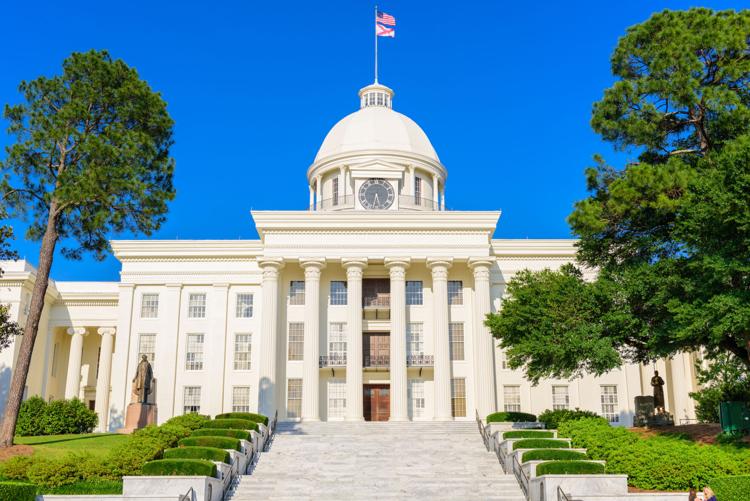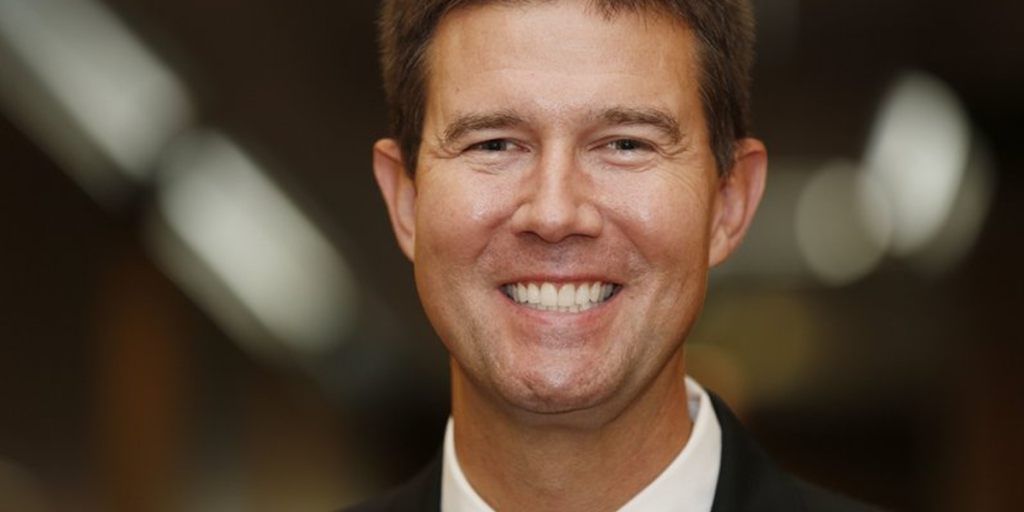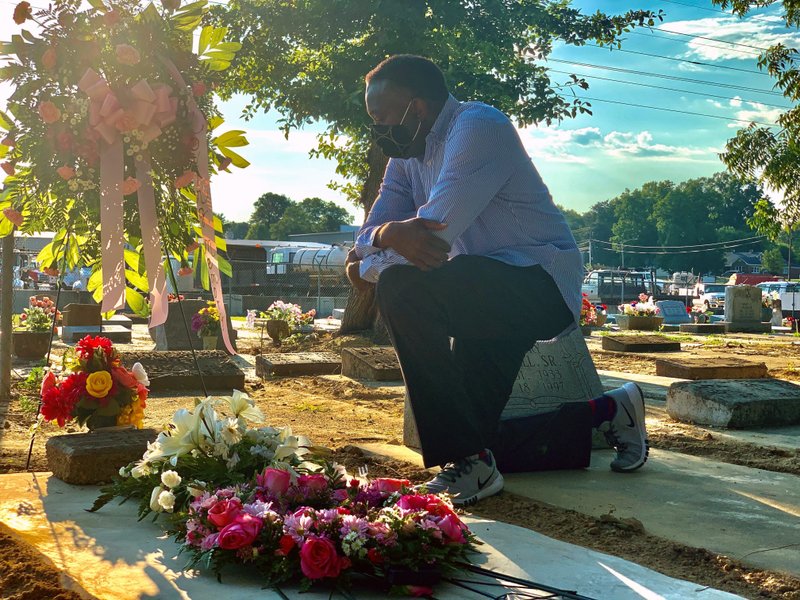Kay Ivey awards $26.6 million to communities to expand broadband access

Gov. Kay Ivey announced today that more than $26 million in state funds have been awarded to provide broadband services in numerous locations throughout Alabama. The nine grants were awarded to broadband providers across the state. Once work is completed, the expanded broadband service will provide the capability to serve nearly 15,000 additional households, businesses, and public facilities, including schools and police, and fire services in areas without access to broadband service. Broadband providers supply access to broadband service, but households and businesses must still pay for connecting to the service. The expansion will also provide additional links to make it more feasible to supply future broadband service within those areas. “Alabama continues to make strides in providing reliable high-speed internet services for families and businesses throughout Alabama,” stated Governor Ivey. “I extend my thanks to legislators who realize the importance and the huge impact that access to broadband services mean for Alabama. I also thank the service providers for their willingness to be a part of this mission to change the lives of Alabamians.” The Alabama Department of Economic and Community Affairs (ADECA) administers the Broadband Accessibility Fund grants from state funds allocated by the Legislature. The grants are issued through ADECA’s Alabama Digital Expansion Division, which was created by legislation signed by Governor Ivey in 2021 focusing on broadband expansion in Alabama. According to ADECA, many Alabama homes and businesses receive less than the current federal definition of broadband service, which is 25 megabits per second (Mbps) download speed and three Mbps upload speed. “Having access to high-speed internet service can change the world for families in rural areas, particularly when it comes to education, health care, or running a business,” said ADECA Director Kenneth Boswell. “I am honored to have the trust that Governor Ivey and the Alabama Legislature have placed in ADECA to administer this program that is making a difference for people throughout the state.” Grants awarded and affected areas are: Blount/Etowah Counties Comcast Cable Communications – $1.32 million to provide access to 956 households, businesses, and public institutions in the towns and communities of Allgood, Altoona, Walnut Grove, Pana, Ellison Crossroads, and Redbud. Cherokee County Comcast Cable Communications – $4.74 million to provide broadband access to 2,778 households, businesses, and public buildings in the towns of Leesburg, Sand Rock, and the community of Anderson. Colbert County Comcast Cable Communications – $1.2 million to provide broadband access to 1,567 households, businesses, and public establishments near the town of Leighton and the communities of Ford City and Hatton, and an area near the town of Littleville. DeKalb County Farmers Telecommunications Corp. – $3.4 million to provide broadband access to 826 households, businesses, and public service institutions in or near the towns, cities, and communities of Mentone, Valley Head, Fort Payne, Cloudmont, Cloudland, Union Hill, Moon Lake, Ponderosa, Bankhead, Little River East Fork, Little River West Fork, Oakdale, Sylvania Gap, and DeSoto State Park. Jackson County Farmers Telecommunications Corp. – $4.37 million to provide broadband access to 1,818 households, businesses, and public buildings, including all or parts of the towns and communities of Dutton, Section, Langston, Powell, Macedonia, Davistown, Pleasant View, Hodge, and Hancock Crossing. Lauderdale County Spectrum Southeast – $2.31 million to provide broadband access near the town of Waterloo. The project will make high-speed internet available to 2,267 households, businesses, and public institutions. Mobile County Comcast Cable Communications – $686,298 to provide broadband access to 438 households, businesses, and public institutions in the communities of Alabama Port and Mon Louis. St. Clair County Comcast Cable Communications – $3.63 million to provide broadband access to 2,104 households, businesses, and public institutions in an area adjacent to the town of Ragland. Walker County Spectrum Southeast – $4.95 million to provide broadband access for 2,097 households, businesses, and public institutions in the areas of the towns of Oakman and Nauvoo.
Mike Rogers warns that Republicans will have to compromise after taking control of the House of Representatives

Congressman Mike Rogers spoke to the St. Clair County Young Republicans on Thursday about GOP priorities when the Republicans retake control of the House of Representatives in the midterm elections. Rogers predicted that Republicans would win control of the House of Representatives in the November 8 general elections. “They know they are going to lose the majority,” Rogers said of the Democrats. “We know they are going to lose the majority. The party of the President historically loses an average of 28 seats in his first term because Presidents get in there and start changing things.” “We think we could pick up between 20 and 46 seats,” Rogers said. “We have 214. There are not as many seats in play as the 2010 elections, where we picked up 60 seats, but we only had 185 seats then. We need 218 to take the majority.” “218 is not enough, as Nancy Pelosi is finding out,” Rogers said. “The House has 435 members; they have a four-vote majority. It is almost impossible for them to get all of their 218 members there to vote.” Rogers said Speaker Pelosi has gotten around that issue by using proxy voting, where a member gives their vote to a proxy to vote for them. “We had 35 Democrats that never ever showed up in Washington for a year after they were sworn in,” Rogers said. “We think it is unconstitutional. We have a lawsuit in place. The pandemic is in the rear-view mirror, and they are still using proxy voting. It will be one of the first things we change when we take over.” “On election night, 218 is not the number to watch – it is more like 233 or 240,” Rogers said. “We are going to have to have more than a small majority in order to really get things done. Both sides have got problem members. Even though we had the majority, it was difficult for us to get things done because we could never get those 12 to 15 hard-core members to go along with the caucus. They would rather kill legislation than vote for bills that could pass in the Senate. I call them legislative terrorists.” Rogers expressed confidence that Republicans would take the majority in the House. “I am very optimistic that we will have a strong majority,” Rogers continued, predicting that the number would be 240 House Republicans. “This is going to be historic. I have seen the (poll) numbers on my side. People are hopping mad. The biggest two issues are the economy and wokeism.” Rogers warned that even with control of the House, the Senate would also be an issue. “When we do take control, temper your expectations,” Rogers said. “We will control the House, but 53 or 54 seats is the best-case scenario in the Senate, and that is not enough to clear the Senate’s 60 vote filibuster rule.” “Democrats are going to have a say in legislation in the Senate,” Rogers warned. “We are going to have to compromise.” “The executive branch still has immense power because they control all of these executive agencies,” Rogers said. “We have got to get the Presidency back in 2024.” “We will control the purse strings so we can stop a lot of stuff,” Rogers said. “Those 87,000 IRS agents – that will never happen. Finding workers in this economy is a challenge. They have got to recruit them. Then they have got to train them. It will take months, and by then, we will be in charge of the purse strings. Those 87,000 agents will never happen. That’s one thing we can do. We can also stop all of these woke initiatives in the Department of Defense and the Education Department.” Rogers was asked if the Republicans were going to impeach Vice President Kamala Harris and President Joe Biden. “Homeland Secretary [Alejandro] Mayorkas and Merrick Garland will be our targets,” Rogers said. “Mayorkas has lied to the Congress, saying that he has control of the southern border when he hasn’t even tried.” St. Clair County Young Republican Chairman Logan Glass said that the group would next meet in October. Mike Rogers has represented Alabama’s Third Congressional District since 2002. To connect with the author of this story, or to comment, email brandonmreporter@gmail.com.
Most of Alabama congressional delegation opposes Biden’s student loan forgiveness plan

Alabama’s federal elected officials are weighing in on President Joe Biden’s announcement on student loan forgiveness. The plan, President Biden announced Wednesday afternoon, calls for forgiving $10,000 in federal student loan debt that is owed by those earning less than $125,000, which one group, the Committee for a Responsible Federal Budget, said could cost taxpayers in excess of $200 billion. However, the debt reduction for Pell Grant recipients would be set at $20,000 under Biden’s plan while permitting borrowers to cap loan repayment at 5% of their current income. “In keeping with my campaign promise, my Administration is announcing a plan to give working and middle-class families breathing room as they prepare to resume federal student loan payments in January 2023,” Biden said in a statement. Republican Rep. Gary Palmer said the decision to “write-off $300 billion” in student loan debt would only make inflation worse. “This is is an incredibly insensitive decision that almost entirely benefits higher wage earners who attended college at the expense of everyone else who either paid for their college educations or never attended college,” Palmer said in a release.” Palmer called the plan a “vote-buying scheme” that would “further expose” Democrats “are not the least bit concerned that 61% of American households are now living paycheck-to-paycheck.” In addition to further increasing the financial burden on American families, this is nothing more than a raw abuse of power by the Biden Administration. Read my full statement regarding Biden’s Student Loan Bailout Plan here: https://t.co/IneTQIqPNR pic.twitter.com/cIJba20gAm— Gary Palmer (@USRepGaryPalmer) August 24, 2022 Republican Rep. Barry Moore called into question what lesson would be learned from forgiving student loan debt. I joined the military, used the GI bill & started at junior college. My wife waited tables. We sweated, sacrificed & saved to pay for our college educations & borrow to start & grow our small business.What lesson is Biden sending wiping clean debts students willingly took on?— Rep. Barry Moore (@RepBarryMoore) August 24, 2022 “I joined the military, used the GI bill & started at junior college,” Moore tweeted. “My wife waited tables. We sweated, sacrificed & saved to pay for our college educations & borrow to start & grow our small business. What lesson is Biden sending wiping clean debts students willingly took on?” Republican Rep. Mike Rogers called into question the timing of the announcement, given the fact the nation is already struggling with “record-high inflation” and “a recession.” Our nation is already struggling with record-high inflation and a recession. Biden’s student debt scheme will only force Americans, who have already paid off their debts or who did not take on student debt, to foot the bill for his socialism.— Mike Rogers (@RepMikeRogersAL) August 24, 2022 Democrat Rep. Terri Sewell championed the move by the Biden Administration, saying it would provide relief to middle and working-class families “who need it most.” “A good education should be a ticket to the middle class, but across the nation, the soaring cost of college has made it near impossible for many Alabamians to pursue the American dream,” Sewell said in a release. “Today’s announcement is welcome news for so many Alabamians who are being crushed by student loan debt. This targeted economic relief will provide peace of mind for those who need it most. I’m grateful to have a President who follows through on his promises and looks out for the needs of our students and working families.” Republican Sen. Tommy Tuberville tweeted that those Americans “who chose to enter the workforce instead of going to college” will be responsible for paying off the debt. Working families and Americans who chose to enter the workforce instead of going to college will be the ones to foot the bill. And it’s unfair to the millions of students who worked hard to pay off their student loan debt. https://t.co/ESEjH3IKsY— Coach Tommy Tuberville (@SenTuberville) August 24, 2022 “Democrats, once again, are putting the interests of far-Left activists ahead of ALL Americans,” Tuberville tweeted. “Our economy is on the verge of a recession. We should be looking at policies that cut taxes, spending, and regulations – not adding to the tax burden & fanning the flames of inflation.” Democrats, once again, are putting the interests of far-Left activists ahead of ALL Americans. Our economy is on the verge of a recession. We should be looking at policies that cut taxes, spending, and regulations – not adding to the tax burden & fanning the flames of inflation.— Coach Tommy Tuberville (@SenTuberville) August 24, 2022 Republished with the permission of The Center Square.
John Merrill: Let’s acknowledge how far we have come

When discussing voting rights, some individuals and special interest groups focus on the Alabama of 1962, but they never acknowledge the Alabama of 2022 and the great progress we have made in our state. They attempt to use our state’s troubled past as justification for their present political agenda. These folks are entitled to their own opinion, but they are not entitled to their own facts. Today, Alabama has been called the gold standard for election administration by three separate entities, and our office works each day to ensure that every eligible Alabamian is registered to vote and that every voter can obtain a valid government-issued photo ID. Although we are always looking for areas of improvement, it is important to note that improvement is not weakening our election integrity measures. My goal has always been to make it easier to vote and harder to cheat. When administering the election process, officials must properly balance voter access and election integrity. We have found that proper balance in Alabama, and that assertion is supported by the empirical data. Since the beginning of my term in 2015, we have registered 2,113,006 new voters, which brings the total number of registered voters to 3,665,924, and we have set records for voter participation for both Primary and General Elections. At the same time, we have strengthened our election security measures by implementing the 2014 Photo Voter ID law. In conclusion, let me say that it is important to remember the history of voting rights in our state, but we should also acknowledge the great strides and accomplishments, as well. John Merrill has been the Secretary of State for Alabama since 2015.
Judge orders unsealing of redacted affidavit in Donald Trump search

A judge ordered the Justice Department on Thursday to make public a redacted version of the affidavit it relied on when federal agents searched the Florida estate of former President Donald Trump to look for classified documents. The directive from U.S. Magistrate Judge Bruce Reinhart came hours after federal law enforcement officials submitted under seal the portions of the affidavit that they want to keep secret as their investigation moves forward. The judge set a deadline of noon Friday for a redacted, or blacked-out, version of the document. The order means the public could soon get at least some additional details about what led FBI officials to search Mar-a-Lago on August 8 as part of an investigation into classified documents being retained at the Palm Beach property. Documents already made public as part of the investigation show that the FBI retrieved from the property 11 sets of classified documents, including information marked at the top secret level. Search warrant affidavits typically contain vital information about an investigation, with agents spelling out why they want to search a particular property and why they believe they are likely to find evidence of a potential crime there. In this case, though, the redactions proposed by the Justice Department are likely to be extensive given the sensitivity of the investigation and unprecedented nature of the search, lessening the chance that the public will receive a detailed glimpse of the basis for the search or the direction of the probe. In his order Thursday, Reinhart said the department had made compelling arguments to leave sealed broad swaths of the document that, if disclosed, would reveal grand jury information; the identities of witnesses and “uncharged parties,” and details about the investigation’s “strategy, direction, scope, sources, and methods.” But he also said he was satisfied “that the Government has met its burden of showing that its proposed redactions are narrowly tailored to serve the Government’s legitimate interest in the integrity of the ongoing investigation and are the least onerous alternative to sealing the entire Affidavit.” The department had earlier contested arguments by media organizations to make any portion of the affidavit public, saying the disclosure could contain private information about witnesses and about investigative tactics. But Reinhart, acknowledging the extraordinary public interest in the investigation, said last week that he was disinclined to keep the entire document sealed and told federal officials to submit to him in private the redactions it wanted to make. Multiple news media organizations, including The Associated Press, argued in court last week for the disclosure of the affidavit, citing the extraordinary public interest in the federal search of a former president’s home. Trump and some of his supporters have also encouraged the document’s release. After the Justice Department submitted its filing under seal on Thursday, the media coalition responded by asking the judge to unseal portions of the department’s brief and to direct the government, “going forward,” to file publicly a redacted version of any sealed document it submits. The groups noted that significant information about the investigation is already public. “At a minimum, any portions of the Brief that recite those facts about the investigation, without revealing additional ones not yet publicly available — in addition to any other portions that pose no threat to the investigation — should be unsealed,” the news organization wrote. They added, “If and when additional facts come to light and are confirmed to be accurate, or certain facts no longer pose a threat to the investigation for any other reason, there is no justification for maintaining them under seal either.” Republished with the permission of The Associated Press.
Rapid rainfall floods buildings and highways in Deep South

Large fans hummed noisily Thursday to try to dry out the carpet at The Exchange Church, a day after storms rapidly dumped several inches of rain and pushed water into the one-story brick building in central Mississippi. Bryant May is lead pastor of the Southern Baptist congregation in the Jackson suburb of Pearl. He said it was the second time in four years the church had flooded. The church will conduct online services this weekend, and May said he hopes the building will be in working order soon after that. “The good news in it is that we have a little bit of experience — that’s good news/bad news — so we have a little bit of a game plan on how to attack it,” May said Thursday. Weather radar showed heavy rainfall Thursday in parts of Louisiana, Mississippi, Alabama, and in the Florida panhandle. Several flash flood warnings were issued, and the Mississippi Department of Transportation reported water covering highways Thursday from the central part of the state down to the Gulf Coast. Flowing water washed away part of a state highway in rural Newton County, between Jackson and Meridian. The National Weather Service predicted the Pearl River near Jackson, Mississippi, will crest early next week at nearly the level it reached during flooding in 2020. Emergency officials said residents in low-lying areas near the river should prepare for the possibility of evacuating in the next several days. After Wednesday’s deluge caused creeks to overflow, law enforcement officers carried toddlers out of a flooded daycare center in Florence, Mississippi, south of Jackson. The Rankin County Sheriff’s Department posted video on Facebook of deputies walking through brown, knee-deep water to take children to an elevated truck, placing them gently on benches. Rankin County sheriff’s deputies also helped move more than 40 residents out of a flooded nursing home Wednesday in nearby Brandon. Tony Banks said Thursday that when he returned to his apartment in the Jackson suburb of Flowood after work Wednesday, the parking lot was knee-deep in water. He said a creek overflowed, flooding some cars and trucks. Banks said he caught a fish near the vehicles. “He was flopping around in the parking lot, and I grabbed his mouth,” said Banks, 35. He said he tossed the bass back into the water. In Alabama, vehicles traveling along flooded roads created boat-like wakes on low-lying Dauphin Island, a popular beach community off the coast, but police said the water was not deep enough Thursday morning to pose a major threat. Flooding was likely across southwestern Alabama through nightfall, forecasters said, and Mississippi temporarily closed a welcome station on Interstate 10 because of flooding. A few schools around Mobile, Alabama, dismissed early because of flooding or power outages. The National Weather Service said rain was falling at a rate of as much as 3 inches (7.6 centimeters) an hour along the coast, and roads and parking lots were flooded in Foley on the eastern shore of Mobile Bay. Joy Lester owns a second-hand store in Pearl, Mississippi, near The Exchange Church. She said she will have to throw away most of the couches, dining room sets, and inventory that were soaked by flooding. “All of this is just a waste. It’s got to go,” Lester said as she surveyed the damage Thursday. Three Mississippi cities set one-day rainfall records Wednesday, the weather service said. Jackson received just over 5 inches (12.7 centimeters), Meridian received 4.6 inches (11.7 centimeters), and Vicksburg received 2.9 inches (7.4 centimeters). On Wednesday, Jackson also surpassed its previous record for rainfall for the month of August, at 11.57 inches (29.4 centimeters). The previous record for the month was 11.51 inches (29.2 centimeters) in 2008, the weather service said. The National Weather Service said flooding was expected near several rivers in central and southern Mississippi. The Pearl River was above flood stage in the Jackson area Thursday and was expected to continue rising. That means streams and creeks are unable to drain into the river, and water could threaten homes and businesses. Republished with the permission of The Associated Press.
State awards death benefit claims to 15 employees for on-the-job injuries including 11 who died from COVID-19

The State Board of Adjustment has approved 15 claims for the families of law enforcement officers and firefighters who died as a result of job-related injuries or illnesses. Eleven of those deaths were a result of COVID-19 contracted while on the job during the global pandemic. Juan Manuel Gomez-Lopez was a Pelham Police officer who died from COVID-19. His widow received $126,072. Brandon Wyatt Ard was an Orange Beach Police officer who died from COVID-19. On October 27, 2021, his family’s claim was denied. The Comptrollers reversed that decision and voted to pay his daughter’s claim of $126,072. Buddy Ray Crabtree was the Police Chief of Ider. He also contracted and died from COVID-19. The family of Chief Crabtree claim was also initially denied compensation in February. That decision was reversed at the August meeting, and the Board voted to pay his widow $126,072. Steven Ray Finley was an investigator with the Madison County Sheriff’s Office. He also contracted and perished from COVID-19. In February, the state rejected the claim. That decision was reversed, and his widow received $134,897. Selma Police Officer Marquise Moorer was shot and killed on duty. He was ambushed at his home, returning to eat lunch. His mother received a death benefit of $124,331. Michael Keith Morgan was a corporal with the Cherokee Sheriff’s Department. He died from complications from COVID-19. In March, his family’s claim was denied. That decision was reversed, and the board voted to pay his widow $126,072. Harry Marvin Hutchinson Jr. died from COVID-19 while working for the Blount County Sheriff’s Department. His widow was awarded $126,072. Larry Vincent was a firefighter who died from organ failure due to cancer he contracted from exposure to firefighting foam. His widow received $134,897. Darryl Wayne Fortner was a Vestavia Hills Police officer Darryl who died from complications as the result of contracting COVID-19 in the line of duty. His widow received $134,897. McAdory Fire Chief Jeff Ray Wyatt died from cardiopulmonary arrest. His widow was awarded $134,897. Brice Jordan was a firefighter with the Georgia Mountain Volunteer Fire Department. He was also killed by COVID-19. His widow received $126,072. Shannon Marie Jordan was also a member of the Georgia Mountain Fire Department who died from COVID-19. Her adult children were awarded $126,072. She was the daughter of Brice Jordan and went on a ventilator just two days after his death from the same illness. Lieutenant Justin Keith Roberts was an Anniston firefighter with 20 years of service who died from COVID-19. His widow received $126,072. Doyce Julian Thomas Sr. was a Huntsville firefighter who died from cancer. His widow received $134,897. Ricky Lee Woods was a longtime member of the Sumiton Volunteer Fire and Rescue Squad who died from COVID-19. His father was awarded $124,331. COVID-19 claims were originally not a cause of death that the state would pay a claim for, even if it could be determined that the victim contracted the illness doing their duties for the state. The legislature passed House Bill 488 during the 2022 legislative session to change that retroactively. The State Board of Adjustment hears claims against the state from citizens and vendors. The Board of Adjustment is also designated in state statute as the “awarding authority” for benefits to families of police officers and firefighters killed in the line of duty and National Guardsmen who perish while “quelling a riot, rout or civil disturbance.” The members of the Board of Adjustment include State Auditor Jim Zeigler, State Treasurer Young Boozer, State Finance Director Bill Poole, and Secretary of State John Merrill. “The families of law enforcement and state employees who die in the line of duty deserve compensation,” said Zeigler. “It is up to us on the Board of Adjustment to determine if it was a job-related death.” The State Board of Adjustment decides all claims against the state. It approved the claims in an August 17 meeting. To connect with the author of this story, or to comment, email brandonmreporter@gmail.com.


